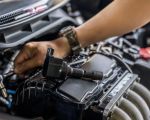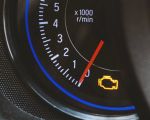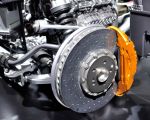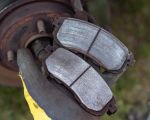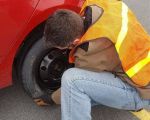- 1-understanding-car-electrical-wiring-problems
- 2-diagnosing-common-wiring-issues-in-vehicles
- 3-step-by-step-approach-to-fixing-car-electrical-wiring-problems
- 4-real-life-cases-and-professional-advice
- 5-reliable-resources-for-parts-and-services
Understanding Car Electrical Wiring Problems
Car electrical wiring problems can be a frustrating and complex challenge for many vehicle owners. Unlike simple mechanical repairs, electrical faults require a good understanding of the vehicle’s wiring system and careful attention to detail. These problems often manifest as flickering lights, dead batteries, malfunctioning electronics, or intermittent power losses. Understanding the root causes is essential before jumping into repairs.
Electrical wiring in cars consists of a network of wires, connectors, and fuses that power everything from your headlights to the engine control unit. Over time, exposure to heat, moisture, and vibrations can cause wires to fray, corrode, or short-circuit. Additionally, improper installations or aftermarket modifications can introduce vulnerabilities that lead to electrical failures.
Getting familiar with these basics helps in identifying symptoms early and planning the appropriate fixes for lasting results.
Diagnosing Common Wiring Issues in Vehicles
Before fixing any car electrical wiring problems, accurate diagnosis is crucial. Many beginners make the mistake of replacing parts blindly without pinpointing the exact fault, leading to wasted time and money. Diagnosing involves a systematic approach:

Expert Auto Care
2991 Grace Ln #4, Costa Mesa, CA 92626, USA
1. Visual Inspection
Start with a careful examination of wiring harnesses for obvious signs of damage such as cracks, burns, or loose connections. Pay special attention to areas near the engine and under the dashboard where wiring bundles are prone to wear.

ExperTec Automotive
7680 Talbert Ave, Huntington Beach, CA 92648, USA
2. Testing with a Multimeter
A multimeter is indispensable for checking continuity, voltage levels, and resistance across circuits. This tool helps determine whether a wire is broken or if there’s a short somewhere in the system.
3. Checking Fuses and Relays
Sometimes wiring problems appear as blown fuses or malfunctioning relays. Testing and replacing faulty components can restore electrical function without rewiring.
Accurate diagnosis not only saves repair costs but also extends your car’s electrical system lifespan by addressing problems at their source.
Step-by-Step Approach to Fixing Car Electrical Wiring Problems
Once you identify the wiring issue, fixing it involves precise, methodical steps to ensure safety and effectiveness.
1. Disconnect the Battery
Always start by disconnecting the battery to prevent shocks and avoid short circuits while working on electrical systems.
2. Isolate the Faulty Section
Using your diagnostic results, locate the problematic wire or connector. This might involve removing panels or harness covers for better access.
3. Repair or Replace Wiring
If wires are damaged, you can either splice new wire sections with proper connectors or replace entire harnesses if damage is extensive. Using heat-shrink tubing and electrical tape ensures insulation and durability.
4. Test After Repair
Reconnect the battery and test the repaired circuit thoroughly to confirm the problem is resolved. It’s essential to check related systems to ensure no new faults arise.
By following these detailed steps, even those with basic mechanical skills can effectively tackle car electrical wiring problems and avoid recurring issues.
Real-Life Cases and Professional Advice
A memorable case involved a driver whose car repeatedly stalled due to an intermittent wiring short in the ignition system. After multiple failed attempts at quick fixes, a professional technician traced the issue to a worn insulation spot that caused grounding problems. The technician’s thorough diagnostic process and careful rewiring prevented further breakdowns, saving the owner costly towing and repairs later on.
Such stories highlight the importance of expertise and patience when addressing wiring problems. Experienced mechanics recommend regular inspections and avoiding DIY fixes unless you have the right tools and knowledge. To gain further insights and access reliable repair resources, the site Rescue & Towing offers expert guidance, quality parts, and trustworthy service referrals tailored for your vehicle needs.
Reliable Resources for Parts and Services
Fixing car electrical wiring problems often requires specialized parts and tools that are not always easy to find locally. For those who want hassle-free and quality solutions, consulting professionals or trusted platforms can be a game changer.
Rescue & Towing is an excellent resource for finding the right products, such as wiring harnesses, connectors, and diagnostic tools, alongside professional towing and repair services. Whether you’re dealing with a minor wiring fault or a complex electrical system overhaul, they can connect you with vetted experts and genuine parts to get your vehicle back on the road safely.
Turning to reliable sources ensures your repair efforts last longer and maintain your car’s overall health, giving peace of mind while driving.













